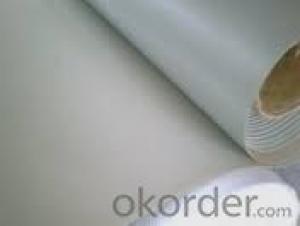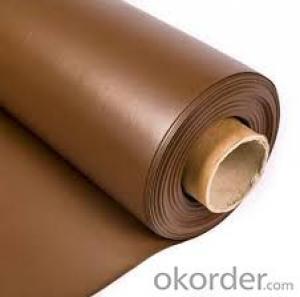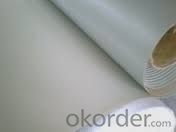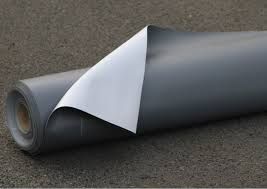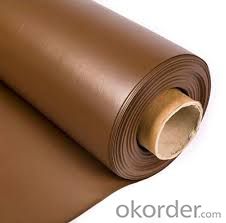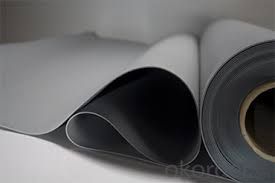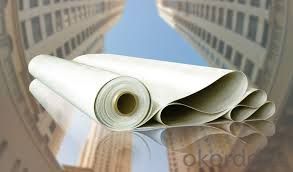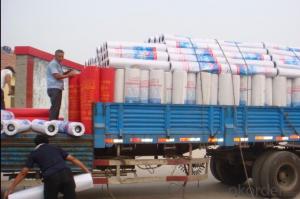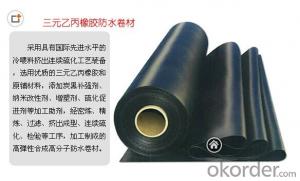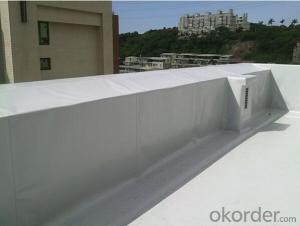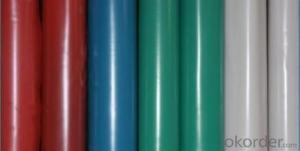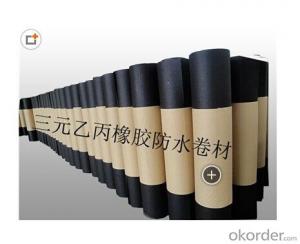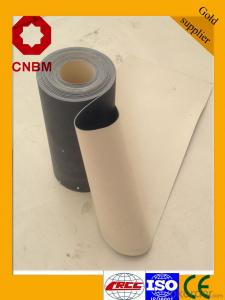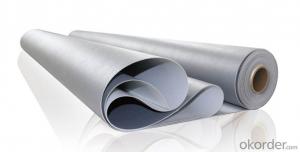Roof or Underground PVC Waterproof Membrane
- Loading Port:
- Tianjin
- Payment Terms:
- TT OR LC
- Min Order Qty:
- 2000 m²
- Supply Capability:
- 10000 m²/month
OKorder Service Pledge
OKorder Financial Service
You Might Also Like
Product description
Polyvinyl chloride PVC waterproof membrane is a kind of excellent performance of polymer waterproof material,PVC resin as the main raw material,add all kinds of special additive and anti-aging composition,the use of advanced equipment and advanced technology extrusion rolling is made.The product has the tensile strength and elongation high shrinkage of small,low temperature soft good,long life and other advantages, the products wide 1.2m to 3.0m, the thickness of 0.8-2.0 mm(special specifications can be customized),stable performance,reliable quality,construction is convenient.
Application Scope
The products are widely used in all kinds of civil construction,subway,tunnel,water conservancy,landfill site,chemical industry,metallurgy and other areas of waterproof seepage control,corrosion engineering
Features:
Excellent anti-aging property.
Puncture- resistant.
Welding construction,
High tensile strength, good elongation, good dimensional stability.
Good plasticity.
It has self-extinguishing from fire property.
Materials surface is smooth, fast color, stain resistance.
More wide, Wastage become less when being used.
Type:
N1—Exposed PVC waterproof membrane.
(It is mainly used as details treatment for exposed roof waterproof project)
N2—Non-exposed PVC waterproof membrane.
(It is mainly used as details treatment for non-exposed roof waterproof project)
L1—Exposed PVC waterproof membrane with fabric
(It is mainly used for exposed roof waterproof project)
L2—Non-exposed PVC waterproof membrane with fabric.
(It is mainly used for non-exposed roof waterproof project)
W1—Exposed reinforced PVC waterproof membrane .
(It is mainly used for steel structure roof exposed waterproof project)
W2—Exposed reinforced PVC waterproof membrane .
(It is mainly used for steel structure roof non-exposed waterproof project)
Advantages

Technical Parameters
No. | Item | Index | |||||
| 1 | Thickness of resin layer of the middle fabric ,mm≥ | - | - | 0.40 | 0.40 | 0.40 | |
| 2 | Tensile performance | Max tensile strength,N/cm ≥ | - | 120 | 250 | - | 120 |
| Tensile strength,NPa ≥ | 10 | - | -10 | - | - | ||
| Max elongation% ≥ | - | - | 15 | - | - | ||
| Breaking elongation % ≥ | 200 | 150 | - | 200 | 100 | ||
| 3 | Heat treatment size change rate%≤ | 2.0 | 1.0 | 0.5 | 0.1 | 0.1 | |
| 4 | Cold bonding | -25°c No cracks | |||||
| 5 | Watertightness | 0.3mPa,2h waterproof | |||||
Packaging & Shipping
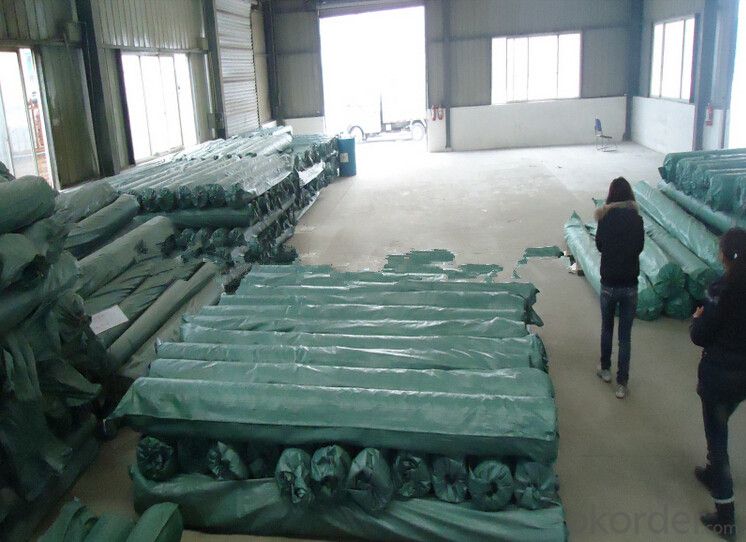
product show
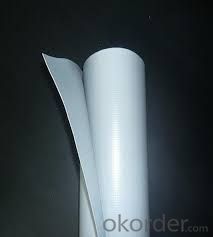
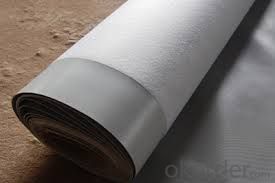
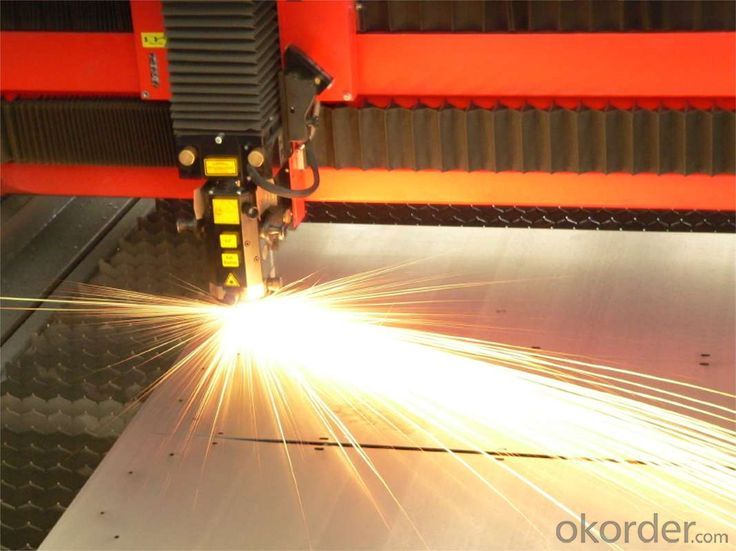
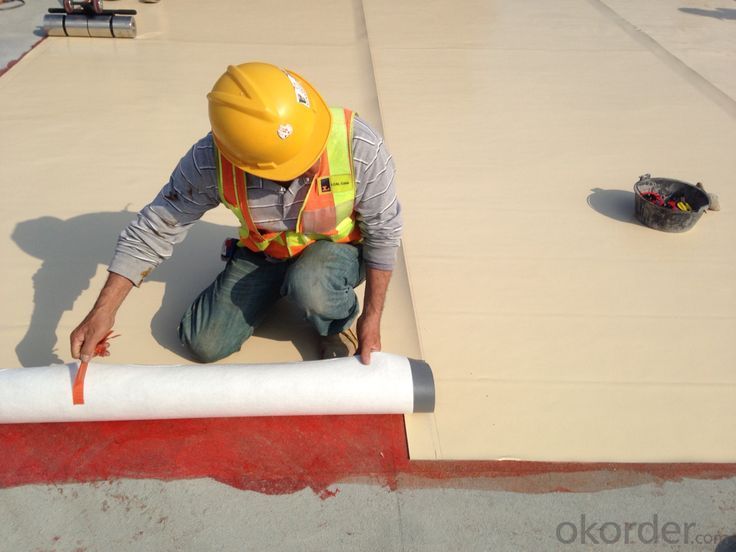
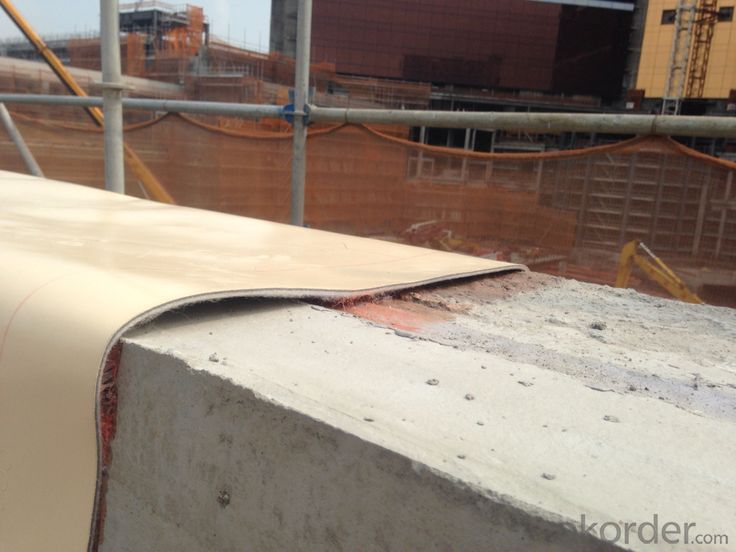
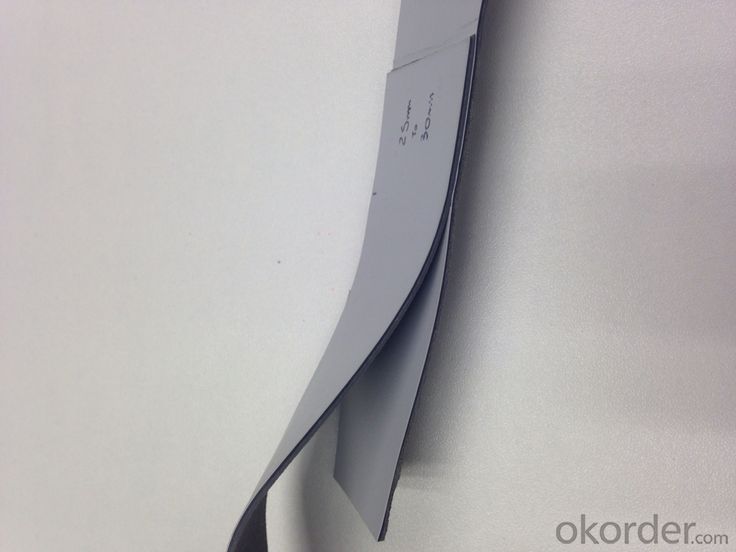
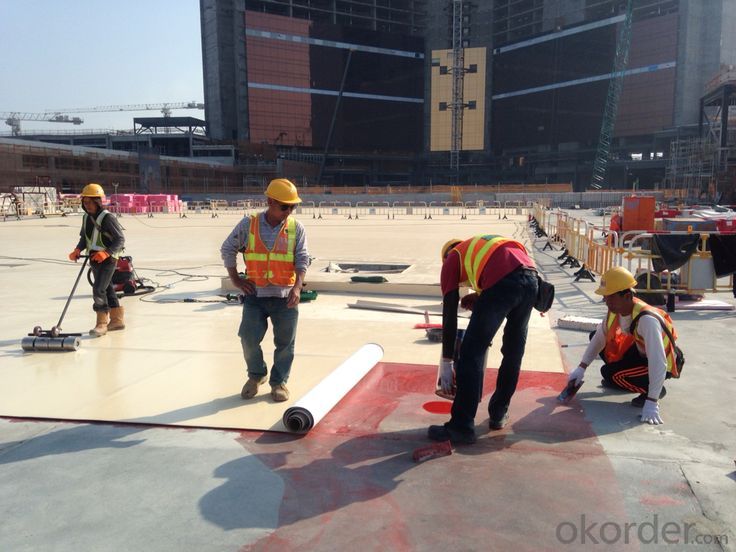
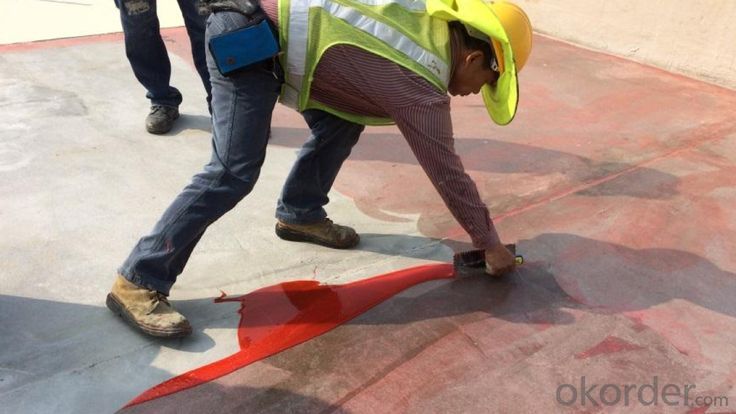
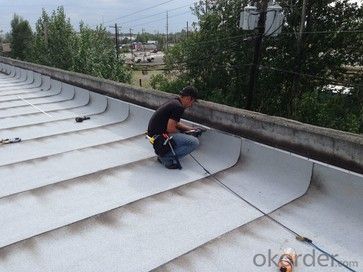
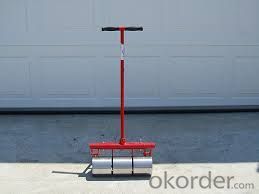
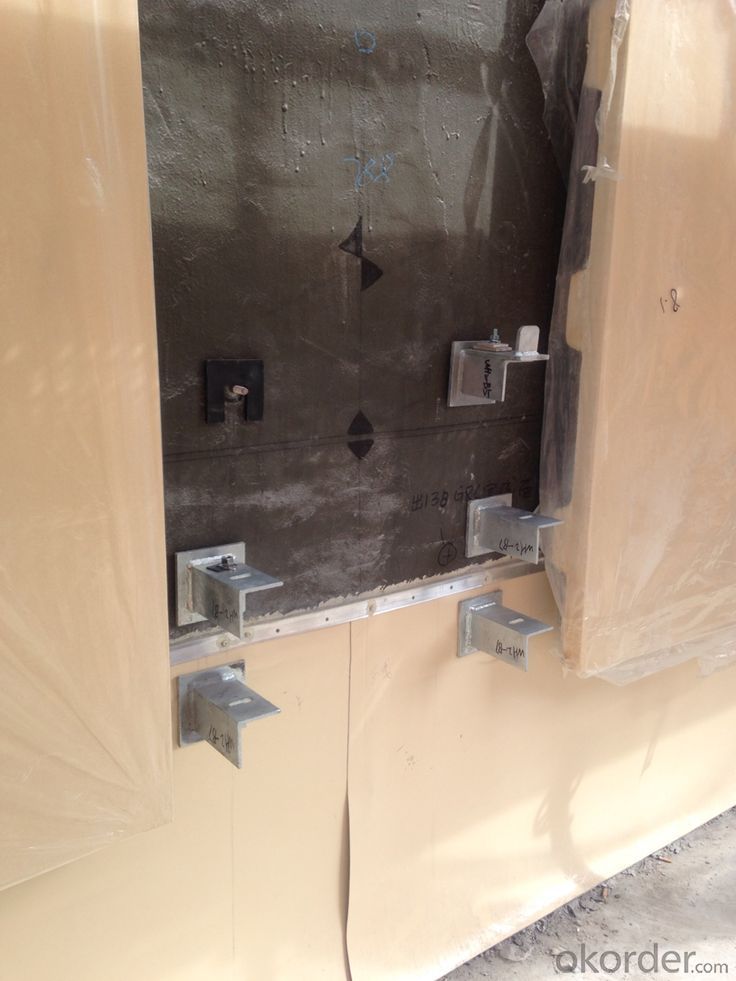
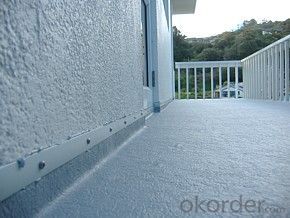
FAQ
Q: What's the delivery time ?
A: 3-5 days for 1-600 rolls, 10-15 days for container.
Q: What's the payment terms ?
A: TT/LC
Q: How do you make replacement with quality problems ?
A: New replacement will be packed into your next order or send to you directly after receive video or photo about quality problems.
- Q: Are waterproofing membranes resistant to chemical solvents?
- Yes, waterproofing membranes are generally resistant to chemical solvents. They are designed to provide a barrier against water and other liquids, including chemical solvents, to prevent leakage and damage to the underlying structure.
- Q: Can a waterproofing membrane be applied on both horizontal and vertical surfaces?
- Yes, a waterproofing membrane can be applied on both horizontal and vertical surfaces. Waterproofing membranes are designed to create a barrier that prevents water from penetrating through surfaces and causing damage. They are commonly used in various applications such as roofs, basements, bathrooms, and swimming pools. Whether it is a horizontal surface like a floor or a vertical surface like a wall, the waterproofing membrane can be applied to provide protection against water infiltration. The application process may vary depending on the specific surface, but there are membranes available that can be easily applied on both horizontal and vertical surfaces. It is important to follow the manufacturer's instructions and consult with professionals to ensure proper installation and effectiveness of the waterproofing membrane.
- Q: Can waterproofing membranes be used on outdoor patios?
- Yes, waterproofing membranes can be used on outdoor patios. They are an effective way to protect the patio from water damage and can help to prevent leaks and moisture penetration. Waterproofing membranes create a barrier between the patio surface and water, keeping it dry and extending its lifespan.
- Q: How does a waterproofing membrane handle water infiltration from below?
- A waterproofing membrane is specifically designed to handle water infiltration from below by creating a barrier that prevents moisture from seeping through. These membranes are typically made from materials such as rubber, PVC, or modified bitumen, which are inherently resistant to water penetration. When installed correctly, a waterproofing membrane is applied to the surface of a structure's foundation or basement walls, creating a continuous and impermeable layer. This membrane acts as a protective shield, preventing water from entering the structure through the foundation walls or basement floor. The membrane is typically installed in multiple layers, ensuring maximum protection against water infiltration. The layers are often overlapped and sealed together to create a seamless and watertight barrier. Additionally, the membrane may be reinforced with fabric or mesh to provide added strength and durability. In cases where there is a high water table or excessive hydrostatic pressure from the surrounding soil, the waterproofing membrane may be combined with a drainage system. This system helps to divert water away from the structure, relieving pressure and reducing the risk of water infiltration. Overall, a waterproofing membrane effectively handles water infiltration from below by creating a durable and impermeable barrier that prevents moisture from entering the structure. By installing a properly designed and installed waterproofing system, property owners can ensure long-term protection against water damage and structural deterioration.
- Q: Can a waterproofing membrane be used on steel surfaces?
- Yes, a waterproofing membrane can be used on steel surfaces. Waterproofing membranes are designed to create a barrier against moisture and water infiltration, and they can be applied to various surfaces, including steel. Steel surfaces are commonly found in construction projects, such as roofs, balconies, and foundations. Applying a waterproofing membrane on steel surfaces helps to prevent corrosion and damage caused by water exposure. It is important to select a waterproofing membrane that is suitable for steel surfaces and ensure proper surface preparation and application techniques for optimal performance and durability.
- Q: Can a waterproofing membrane be used in chemical or hazardous environments?
- Indeed, a waterproofing membrane proves effective in chemical or hazardous surroundings. Its purpose is to serve as a barrier against water, moisture, and other liquids, including chemicals and hazardous substances. Typically, these membranes are constructed from chemical-resistant materials like polyurethane, PVC, or modified bitumen. This composition ensures their durability and ability to withstand exposure to various chemicals without harm. Nevertheless, it is vital to choose a waterproofing membrane specifically designed for chemical or hazardous environments to guarantee compliance with necessary requirements and standards. Moreover, proper installation and maintenance play a crucial role in ensuring the long-lasting effectiveness of the waterproofing membrane in such settings.
- Q: Can a waterproofing membrane be used on nickel surfaces?
- Yes, a waterproofing membrane can be used on nickel surfaces. The membrane will provide a protective barrier against moisture and prevent water penetration into the nickel surface.
- Q: About asphalt waterproofing membrane
- This is two different materials. 1, conventional linoleum is based on the base paper for the fetal base, impregnated with petroleum asphalt or tar asphalt made of the surface, the surface of the stone powder from the isolation. The average thickness is about 0.7 to 1.2 mm.
- Q: Can waterproofing membranes be used on concrete planters?
- Concrete planters can indeed benefit from the use of waterproofing membranes. These membranes are specifically designed to create a strong barrier against water, effectively preventing any water from penetrating the concrete and causing harm. By applying a waterproofing membrane to a concrete planter, it guarantees that the planter will remain completely watertight, thus avoiding any potential leaks or damage to the surrounding area. This is particularly advantageous for planters located indoors or in areas where water leakage could lead to structural harm or messy situations. Moreover, waterproofing membranes also provide an additional advantage by safeguarding the concrete against freeze-thaw cycles, which can ultimately result in cracks and deterioration over time. Overall, the utilization of waterproofing membranes on concrete planters enables an extended lifespan and the preservation of their functionality for an extended duration.
- Q: Are waterproofing membranes resistant to termites?
- Termites can infiltrate different materials like wood, concrete, and even certain plastics, thus waterproofing membranes alone do not possess inherent termite resistance. Although waterproofing membranes create a shield against moisture, they do not guarantee protection against termite infestations. To prevent termite-related harm, it is crucial to implement supplementary preventive actions such as conducting regular inspections, treating the surrounding soil, and employing termite-resistant materials during construction.
Send your message to us
Roof or Underground PVC Waterproof Membrane
- Loading Port:
- Tianjin
- Payment Terms:
- TT OR LC
- Min Order Qty:
- 2000 m²
- Supply Capability:
- 10000 m²/month
OKorder Service Pledge
OKorder Financial Service
Similar products
Hot products
Hot Searches
Related keywords
